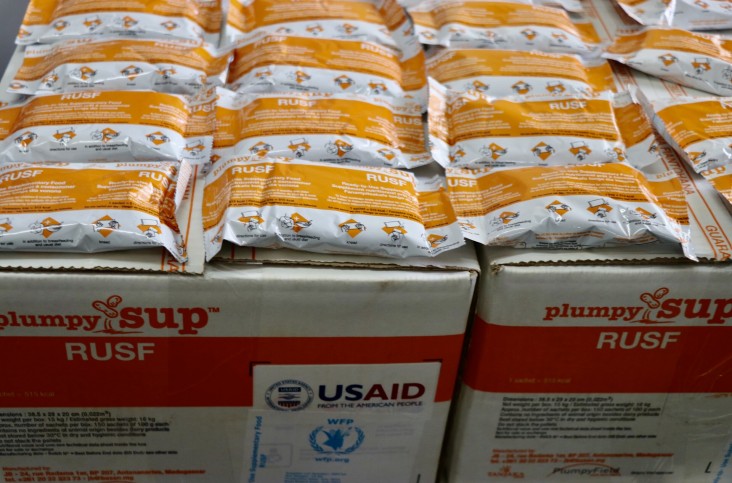Press Release Shim
Speeches Shim

The $500,000 will be used to buy and distribute locally-made malnutrition supplement
For Immediate Release
ANTANANARIVO — Southern Madagascar has entered its lean season - the period between harvests when less food and less food variety are available - and a recent survey forecasts that more people in that region will suffer from malnutrition.
In response to this situation, the United States Government, through the United States Agency for International Development’s (USAID) Food For Peace program, is contributing $500,000 to the Word Food Programme (WFP). This money will provide treatment for 15,550 children under five years of age suffering from moderate acute malnutrition.
“Since 2015, the United States has been the leading donor of emergency relief to families affected by severe drought in southern Madagascar,” stated U.S. Ambassador, Michael P. Pelletier at the announcement. “Based on the food security forecasts it is clear that additional help is needed. These funds will provide malnutrition treatment for children in the eight most drought-affected districts of the Androy, Anosy, and Atsimo Andrefana regions.”
U.S. Ambassador Pelletier made the announcement at Madagascar’s National Nutrition Office (ONN) along with the National Coordinator of the ONN, Lucie Solofonirina, the Minister of Public Health, Prof. Julio Rakotonirina, and the Country Director of WFP, Moumini Ouedraogo.
An analysis was performed in August according to an international classification system - the Integrated Food Security Phase Classification (IPC) - and it reported that the district of Bekily has “critical” levels of acute malnutrition and the seven other districts of the south are experiencing “serious” levels of acute malnutrition.
Ready-to-Use Supplementary Food
The $500,000 in funding will be used by WFP to buy 140 tons of Ready-to-Use Supplementary Food (RUSF). RUSF is a high-calorie nutritional supplement packed with vitamins and minerals. It is given to vulnerable populations to treat or prevent malnutrition. WFP will purchase all of the RUSF from a local manufacturer located in Antananarivo.
There are many factors contributing to acute malnutrition among children in the south, including inadequate food intake, low dietary diversity, poor access to health services, low access to safe drinking water, and a high prevalence of diseases like diarrhea, acute respiratory infection, malaria, and measles. Acutely malnourished children require urgent treatment to rapidly regain a healthy weight, including through the consumption of RUSF.

Comment
Make a general inquiry or suggest an improvement.